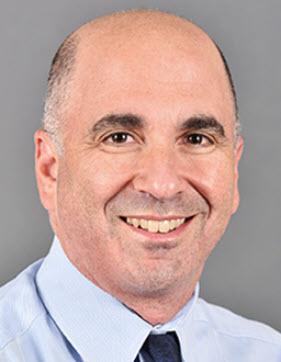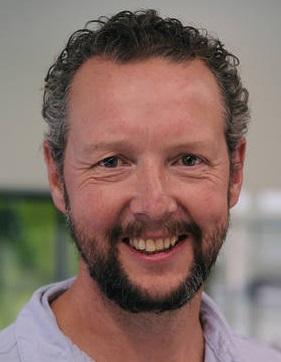2024 Robert Austrian Lecturers
The ISPPD Board is pleased to announce Professor Richard Malley and Professor Stephen Bentley as the 2024 Robert Austrian Lecturers for ISPPD-13.
Prof. Richard Malley is the Kenneth Macintosh Professor of Pediatric Infectious Diseases at Boston Children’s Hospital and a Professor of Medicine at Harvard Medical School, where he has been an active clinician-scientist, mentor, and educator for over 20 years.
Some of his early work helped to identify clinical algorithms to predict bacterial meningitis. Later and ever since, the bulk of his work has been in the laboratory. Some of his early reseearch defined innate immune interactions of pneumococcal components such as pneumolysin with Toll-like receptor 4 and the Type 1 pilus with Toll-like receptor 2. His work with Porter Anderson and others on the immune response to a killed, unencapsulated, adjuvanted whole cell vaccine in animal models led him to discover the pivotal role of tissue-resident, CD4+ Th17 cells in immunity to pneumococcal colonization and later to staphylococcal skin and soft-tissue infections. His lab demonstrated how these Th17 cells work in a way complementary to humoral immunity: they work even in the absence of antibodies, but depend on complement and on the recruitment of neutrophils to kill bacteria, and they shorten the duration of carriage rather than preventing its establishment. The whole-cell vaccine has been studied and continues to be studied in clinical trials. He is also the inventor of a new vaccine technology, called the Multiple Antigen Presenting System (MAPS), which he applied to several pathogens, including pneumococcus, Staphylococcus aureus, Group B Streptococcus, Salmonella/Shigella, and Mycobacterium tuberculosis. He co-founded a vaccine company, Affinivax, which was recently acquired by GlaxoSmithKline (GSK). He is a named inventor on 20 patent families that total 188 patents worldwide. His innovative approaches, combining molecular microbiology, immunology, animal models, and clinical trials, have provided a novel strategy to develop vaccines for diseases of both the developed and developing world. The latter is an essential part of Prof. Malley’s efforts, which have always been directed toward finding ways to make vaccines that can protect children around the world.
He has also mentored a generation of investigators in microbiology, pediatric infectious diseases, and vaccinology. One of his many collaborators, Marc Lipsitch, who regrets very much missing this ISPPD, writes: “Talking science and dreaming up experiments with Rick is a joy, and it’s inspiring to watch him work to develop products that can improve the health of children everywhere, regardless of their circumstances. Rick is someone who’s really found a path to doing work that is intellectually stimulating, fun, and good for the world.”
Prof. Stephen Bentley is a Principal Scientist and Team Leader at Wellcome Sanger Institute and Honorary Professor of Microbial Genomics at the University of Cambridge. He has been at the forefront of pneumococcal genomic research, a mentor and educator for over two decades.
Stephen was the first to report the sequences of capsular biosynthesis genes for the 90 pneumococcal serotypes known at the time and thoroughly detailed the serotype-specific variations. This effort paved the way for development of DNA-based serotyping methods using PCR, DNA microarray and whole-genome sequencing (WGS). His team developed the WGS-based serotyping tool SeroBA that is implemented within the user-friendly web application Pathogenwatch and used widely across the pneumococcal community.
Since 2010, Stephen’s team have made a profound contribution to pneumococcal genomics by producing nearly 73,000 genomes (67% of the pneumococcal genomes available in public databases) in collaboration with a diverse group of international researchers. They have developed a wide range of bioinformatics tools to define pneumococcal population structure (PopPUNK and FastBAPs), identify recombinations (GUBBINS), compile pangenomes (Panaroo), associate phenotypes with genotypes (Pyseer), and quantify geographical spread. The 2011 pioneering population genomic study of the PMEN1 lineages was a clear demonstration of the power of genomics for understanding pneumococcal evolution and serotype replacement. It was also the proof-of-concept that led to the birth of Global Pneumococcal Sequencing (GPS) project and the sequencing of >26,000 pneumococcal genomes to study vaccine responses in >60 countries. This unprecedented volume of genome data made possible new lines of inquiry into pneumococcal disease and epidemiology, and has established a model for genomic surveillance of bacterial pathogens and their adaptation to clinical interventions.
Stephen has trained many exceptional PhD students and been a mentor to countless scientists around the world through generous guidance and support in career development. Many of his mentees have become independent researchers in the field of pneumococcal research, amplifying and building upon his foundational work, and contributing significantly to the fight against pneumococcal disease.
PREVIOUS ISPPD LECTURERS INCLUDE:
- Helena Mäkelä †, 2002
- Brian Greenwood, 2004
- Mathu Santosham, 2006
- Alexander Tomasz, 2008
- Ron Dagan, 2010
- Keith Klugman, 2012
- Katherine O’Brien, 2014
- Marc Lipsitch, 2016
- Kim Mulholland, 2018
- David Goldblatt, 2022
2024 RA LECTURESHIP COMMITTEE
- Keith Klugman, USA, Chair
- Ron Dagan, Israel
- David Goldblatt, UK
- Brian Greenwood, UK
- Marc Lipsitch, USA
- Kim Mulholland, Australia
- Katherine O’Brien, USA
- Mathuram Santosham, USA
- Alexander Tomasz, USA

